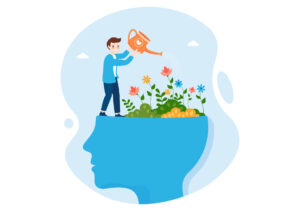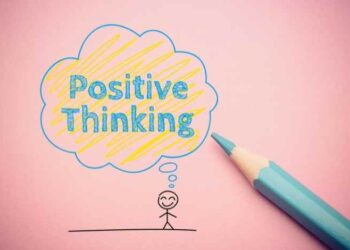
In the pursuit of well-being and happiness in today’s dynamic world, the significance of personal development has grown substantially. It entails dedicating time and energy to self-improvement, be it through acquiring new skills, nurturing positive habits, or refining our mindset. Analogous to nurturing a garden, personal growth involves continuous investment in ourselves for optimal thriving and prosperity.
Delving into personal development allows us to tap into our highest potential, sparking a profound impact on our overall happiness. It empowers us to take charge of our lives, make positive adjustments, and embrace fresh opportunities. The essence of personal growth is pivotal in enriching our relationships, discovering purpose, and fortifying our mental well-being.
Embark on this transformative journey with us as we delve into the ways personal development can elevate well-being.
Throughout, we’ll impart practical strategies, insightful perspectives, and valuable resources to unlock your capabilities.
1. Enhanced Self-Awareness
At the core of personal development lies the crucial element of fostering self-awareness. Self-awareness involves actively observing and understanding our thoughts, emotions, and actions. It requires taking a step back to contemplate our values, motivations, and our very essence. Nurturing self-awareness provides profound insights into our authentic selves, fostering a deeper comprehension of our needs, aspirations, and life purpose.
Effective practices such as mindfulness, journaling, and self-reflection serve as powerful tools in cultivating self-awareness. Mindfulness encourages being fully present in the moment, allowing us to observe our thoughts and emotions without judgment. Journaling offers a secure outlet for self-expression, promoting clarity and the tracking of personal growth.
Lastly, self-reflection prompts us to assess our actions, beliefs, and patterns, empowering us to make intentional choices that align with our genuine selves.
A heightened understanding of ourselves equips us to navigate challenges, make informed decisions, and nurture a profound sense of fulfillment and well-being.
In recent times, there has been a notable upsurge in interest in personal development and the behavioral sciences, creating a buzz around applied behavior. This field focuses on the practical application of psychological insights to bring about changes in behavior and lifestyle. If you’re considering a career in this field, acquiring solid education and hands-on experience is a wise move.
2. Improved Mental Health
Personal development assumes a crucial role in enhancing mental well-being. By dedicating time to self-growth, individuals can witness positive transformations in their mental health. A significant avenue through which personal development contributes to mental well-being is through effective stress management techniques. Learning and applying these strategies empower individuals to cope with and diminish stress, ultimately leading to an overall improvement in mental well-being.
Embedded within personal development are powerful tools such as positive affirmations and gratitude practices that further bolster mental health. By cultivating positive self-talk and focusing on gratitude, individuals can reshape their mindset towards optimism and build resilience. These practices result in elevated mood, enhanced self-esteem, and the cultivation of a positive life outlook.
Consistent research and expert insights affirm the positive impact of personal development on mental well-being. Engaging in activities like growth workshops, therapy, or exploring self-help books can lead to a reduction in symptoms of anxiety and depression, heightened self-awareness, and improved emotional well-being.
Forbes highlights that studies have underscored the effectiveness of personal development practices, such as gratitude journaling and positive affirmations, in improving mental health by redirecting our attention towards the positive aspects of life.
“What holds most people back isn’t the quality of their ideas, but their lack of faith in themselves. You have to live your life as if you are already where you want to be.” – Russell Simmons
3. Increased Self-Confidence
The impact of personal development on self-confidence is profound. Individuals who actively participate in self-improvement efforts can refine new skills, conquer self-limiting beliefs, and establish and attain goals, collectively leading to a notable increase in self-confidence. Furthermore, by directing attention to personal growth, individuals acquire the ability to appreciate their strengths, cultivate resilience, and venture beyond their comfort zones.
An integral facet of personal development contributing to heightened self-confidence is skill-building. As individuals acquire new skills and knowledge, a tangible sense of accomplishment and capability emerges. This newfound expertise empowers them to approach challenges with confidence and assertiveness.
4. Better Relationships
Personal development not only yields individual benefits but also exerts a significant influence on our relationships. Through the journey of personal growth, we nurture crucial relationship skills like effective communication, empathy, and emotional intelligence. These skills empower us to establish and maintain healthy, meaningful connections with others.
Forbes emphasizes the pivotal role of active listening, understanding diverse perspectives, and expressing empathy as integral components of personal development that positively shape relationships. Continuous self-improvement translates into improved partnership dynamics, friendships, and family relationships. We learn to adeptly navigate conflicts, set boundaries, and foster deeper connections.
The positive impacts of personal development on relationships manifest in heightened trust, mutual respect, and overall satisfaction in relationships. Prioritizing personal growth initiates a ripple effect that extends to the quality of our connections, ultimately enhancing our overall well-being.















































